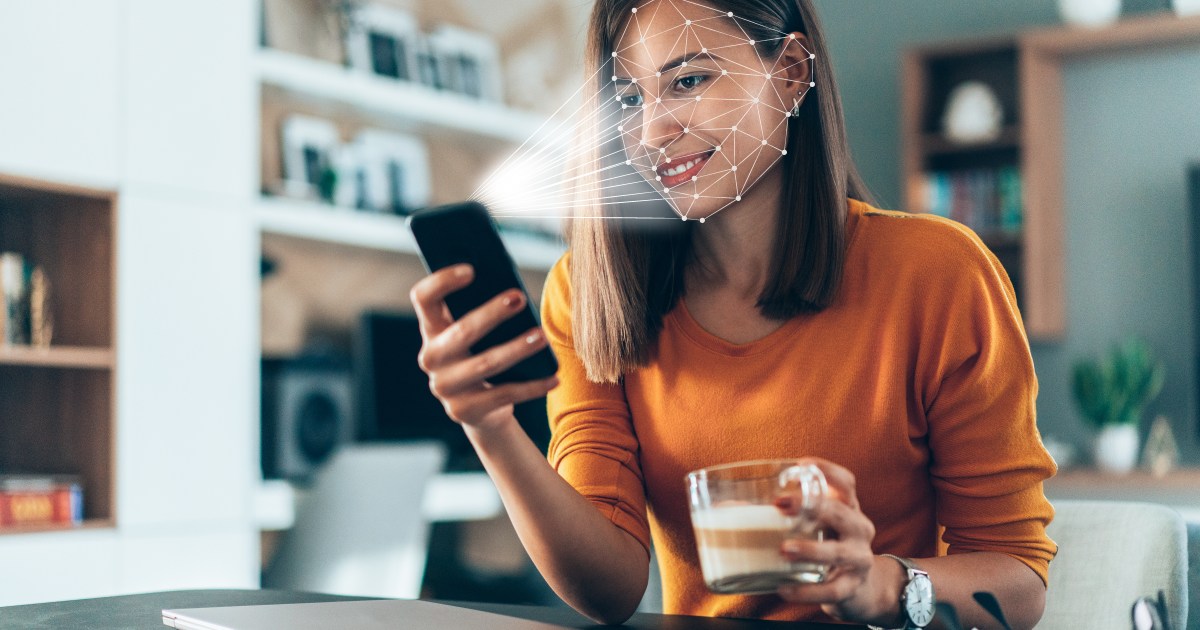The American newspaper,
The Washington Post
, published a lengthy
report
on an American artificial intelligence company, which will within a year have 100 billion facial images in its database, which is enough to ensure the identification of almost everyone in the world, despite the concern of American lawmakers that this constitutes A serious threat to privacy.
The newspaper's artificial intelligence correspondent, Drew Harwell, stated that the Clearview AI company revealed in a financial presentation last December that it was close to collecting images equivalent to 14 images for every person in the world (counting the world's population is about 7 billion people), And that these images helped operate a surveillance system that has been used for arrests and criminal investigations by thousands of law enforcement and government agencies around the world.
Harwell added that Clearview wants to expand beyond scanning faces for police, saying in the presentation that it can monitor workers in the "temporary labor economy", and is looking at a number of new technologies that can identify a person by the way they walk and detect where they are from. Photograph or scan his fingerprints from afar.
The biggest in the world
The report said Clearview customers can upload an image to search for matches in the company's database of faces, with results often linked to a person's other accounts across the web.
The company said its "face index" is 11 times larger than the face databases of any governmental or non-governmental entity today.
The company adds in the presentation that it could "revolutionize" how workers in the gig economy are screened, that its technology can be used to rate people on dating apps, find babysitters, cleaners or repair contractors, and its systems can be used to solve " Difficult physical security issues" in the commercial and retail real estate markets.
It also says that it has developed other systems beyond facial recognition, including license plate recognition and "motion tracking", and that it is developing or researching a number of other surveillance technologies, such as: camera software to detect guns and drugs, and "gait recognition" systems to identify On a person's gait, "photo-to-location" systems to determine where a person is from the background of his photo, and "fingerprint" recognition systems to scan a person's identity from afar.
Collaboration with the US Army
The company also continues to work on augmented reality glasses that the US military can use in “dangerous situations,” as one of the slides states.
Federal spending records showed the Air Force in November gave the company $50,000 to research the technology.
An Air Force Research Laboratory official said the work is a short-term contract to test the quality of this technology.
The report said Clearview built its database by taking pictures from social networks and other online sources, without the consent of the sites or people photographed.
Facebook, Google, Twitter and YouTube have demanded that the company stop taking photos from their sites and delete any previously taken photos, and the company has argued that its data collection is protected under the First Amendment.
She also argued in her testimony to government officials that passing pictures off the Internet allowed the company to create a powerful crime-fighting tool.
"Each image in the dataset is potential evidence that could save a life, provide justice for an innocent victim, prevent false identification, or exonerate an innocent person," she said Wednesday in a statement to The Washington Post.
arrogant approach
A Washington Post reporter commented that Clearview's arrogant approach to data collection has alarmed privacy advocates and counterparts in the facial recognition industry, some members of Congress who urged federal agencies this month to stop working with the company, because "its technology could eliminate public anonymization in United State".
Clearview is currently facing a wave of legal action in state and federal courts, a class action lawsuit in a Canadian federal court, government investigations in Canada, Sweden and the United Kingdom, and complaints from privacy groups alleging data protection breaches in France, Greece, Italy and the United Kingdom.
The governments of Australia and France also ordered Clearview to delete the data of its citizens, saying the company had secretly invested people's faces for a purpose "beyond reasonable expectations".
In a lawsuit on Monday, US District Judge Sharon Johnson Coleman, who is leading the case, upheld most of the plaintiffs' arguments against Clearview's work.
Clearview was a little-known startup until a New York Times report in early 2020 revealed — based on internal emails and public records exposed by researchers — the extent to which local police departments had begun to use it to find potential suspects.
The company said it has since expanded its client list to more than 3,100 US law enforcement agencies, and has contracts with the Department of Homeland Security, the FBI and the military.
The presentation also stated that Clearview "has achieved rapid international expansion, including signing deals in Panama and Costa Rica and pursuing other businesses in Mexico, Colombia and Brazil. The company declined to provide further details, and those deals could not be confirmed."

